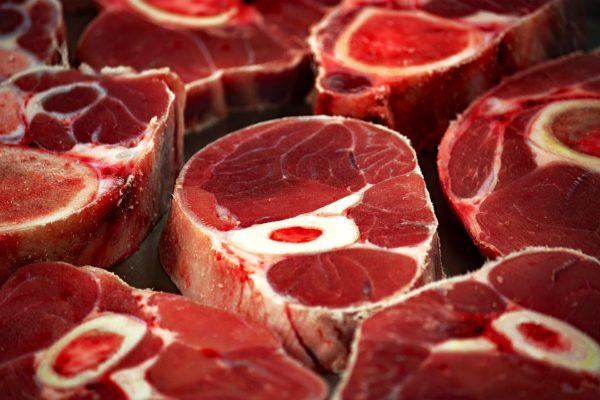
Those who have made a vegetarian-oriented food choice their own, often hear this affirmation during discussions on the subject: “Okay, but human beings have always eaten meat”.
Is this statement true? If so, to what extent?
The beginning of meat consumption
One thing is undeniable: the consumption of meat it was a very important evolutionary factor, especially for the development of some brain faculties.
This is because, in fact, the beginning of the systematic consumption of meat by the human being occurred at the dawn of the species, during the transition from a predominantly fruggivorous species to one yet to be defined.
This occurred in one of the periods in Earth's history known as the Ice Age, during the Pleistocene: low temperatures reduced to a minimum the possibilities of drawing nourishment from plant life forms and prompted our ancestors to adapt first to sucking the bone marrow and brain matter from carcasses, then organizing to hunt down living prey and eat their blood-rich internal organs and muscles.
Fire and farming
Another important step towards civilization was the conquest of fire, thanks to which, among other things, Homo sapiens managed to better dominate other animal creatures and cook meat, in order to make it less attackable by insect larvae.
At the end of the ice age, the human being maintained this dietary habit, integrating the consumption of meat to a wider consumption of vegetables, especially cereals and vegetables, given that the fruit is less conservable and more suitable for nomadic life forms that take advantage of seasonality.
The human being, on the other hand, was developing as sedentary society, therefore i cereals they suited more than fruit, and animals from breeding, more than those to hunt. However, there remains an era in which the meat consumption is scarce, as far as present.
The consumption of meat in more modern times
For all ancient times and throughout the Middle Ages up to the industrial revolution, meat consumption was present but marginal, sometimes (indeed, very often) reserved for the rich and aristocrats: a large, very large chunk of the world population was vegetarian game force.
La fruit it was much more worn out than nowadays, vegetables and, especially, cereals and derivatives they were more widely consumed than meat which, even in noble circles not dedicated to excesses, was present once or twice a week.
In this context, the flesh began to become naturally a symbol of value, a status symbol, a sign of high social position, a factor which consequently tended to unleash a fierce desire for meat in the poorest social strata. But it was more of a "social" hunger than a "physical" hunger.
Do you know how meat and other foods affect temperament?
The recent excesses of meat consumption
America, a land of opportunity but also of excesses. I American pioneers they found an i on their handshuge territory and an innate spirit of business at all costs.
So it was that farming was pushed to the extreme and meat consumption supported by strong medical propaganda, as long as, between the 20s and 40s, together with the economic boom, there was a serious beginning of food problems due to an excessive consumption of meat.
Already in the years' 30 the US government pushed scientists and researchers to study the ideal diet, since i damage from excessive meat consumption caused more social spending than they could produce.
Thirty years of research identified the so-called Mediterranean diet as the best diet to remedy the imbalance, thus returning to a moderate consumption of meat (preferably fish) once a week and to a higher consumption of vegetables.
Quantity and quality of meat consumption
But the human being, as we know, tends to fall back into old mistakes: not only at the present time has he once again abandoned a predominantly vegetarian omnivorous diet to return to an excessive consumption of meat that is dangerous to health, but he has done so and continues to do so. do with two unprecedented features.
The first concerns the quantity: never before in the history of human beings has so much meat been consumed per capita, roughly eight times the amount that prompted Americans to seek a remedy in the previous boom.
The second is quality: at the beginning of the last century people ate too much meat, but it was still of good quality, taken from well-grown and naturally fed animals, while today the meat often comes from animals that have been mistreated since childhood and chemically bombed, and the flesh itself is retouched with preservatives, dyes, additives to make it palatable.
Here's what to answer then when they tell us that humans have always eaten meat: they have always eaten little (on average between 1/15 and 1/20 of the current consumption) and ate it of better quality, good reasons for choosing vegetarian diets.
More meat, more strength: is it true?
To learn more:
> Meat, properties and nutritional values
> Vegans and vegetarians, replace meat or not?


























